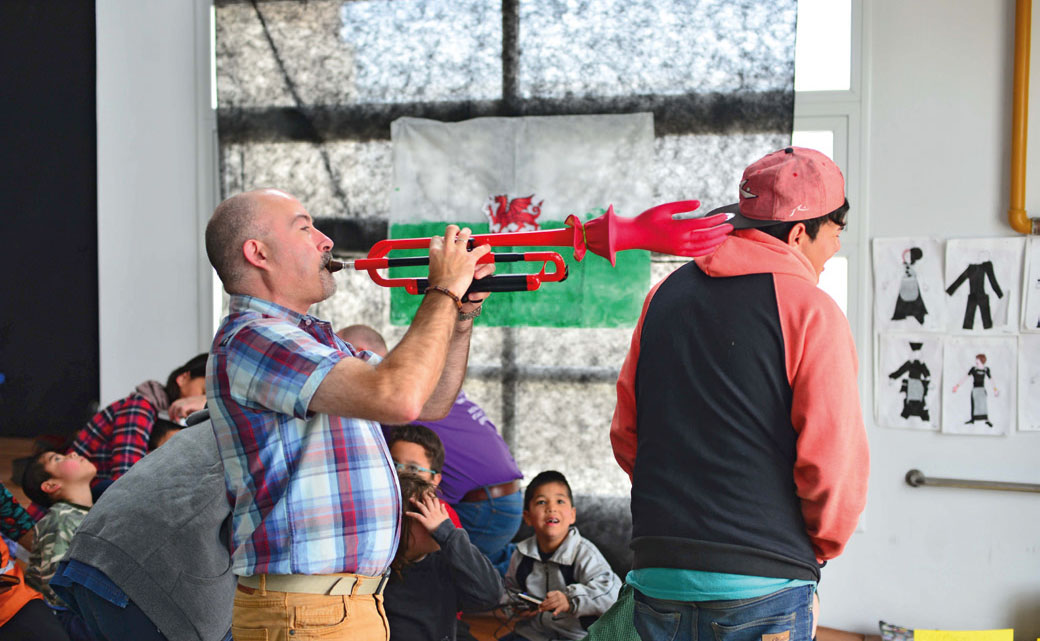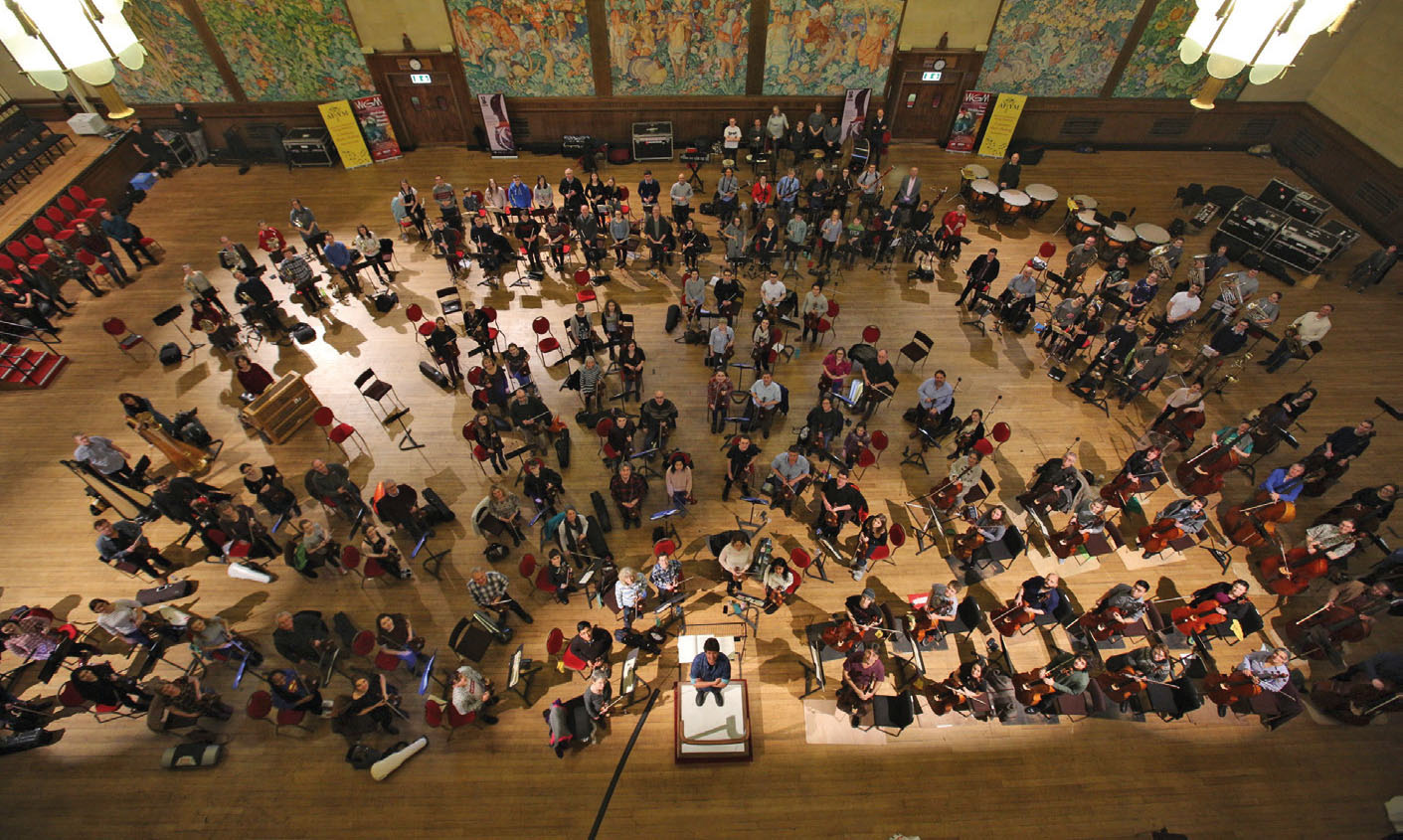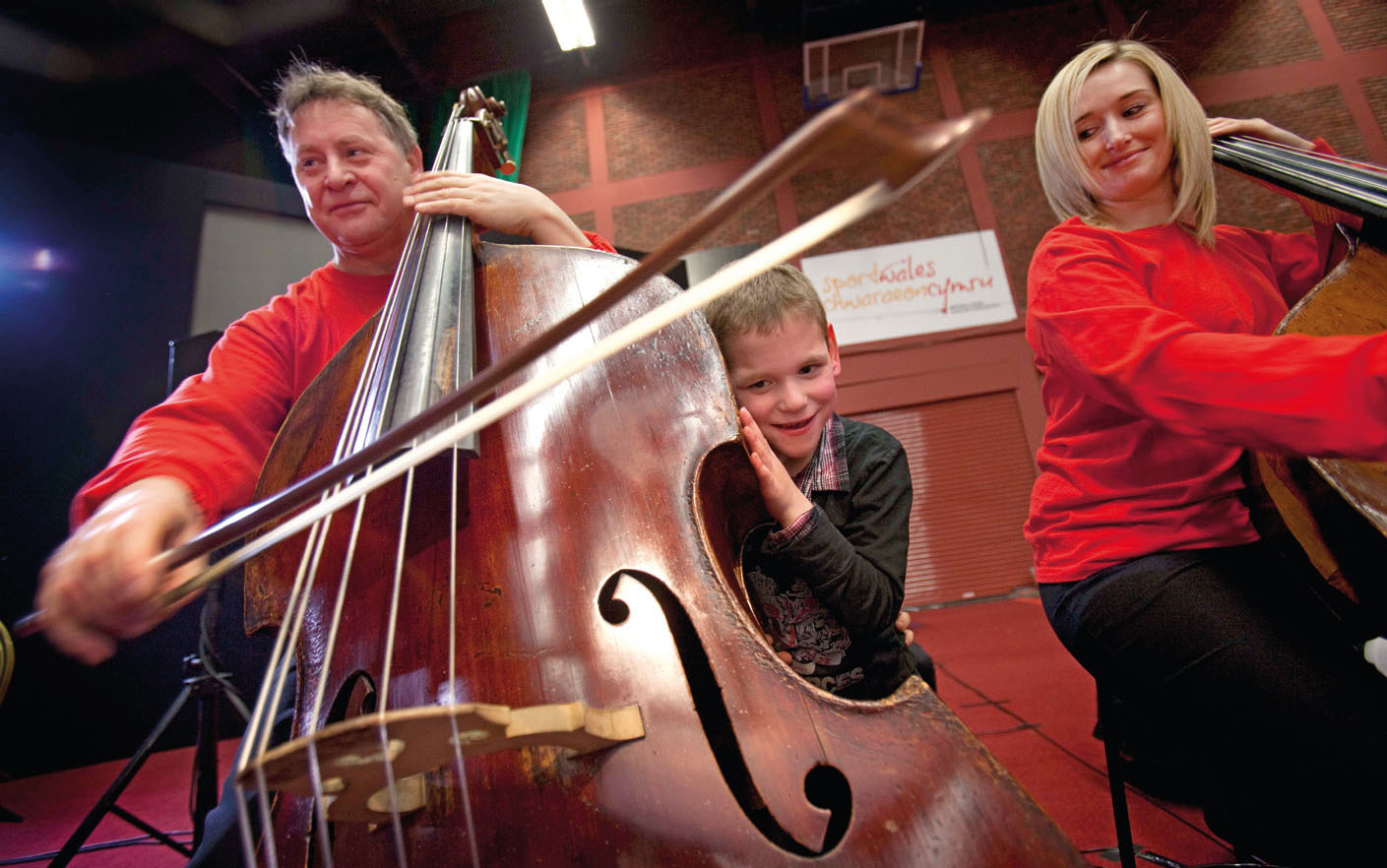
It will be giving four BBC Proms concerts this season, including a performance of Mahler's vast eighth symphony; it shares accompanying duties for Cardiff Singer of the World with the Orchestra of Welsh National Opera; it is resident at St David's Hall, Cardiff; and of course it provides the music for Doctor Who and many BBC Natural History Unit documentaries. But the BBC National Orchestra of Wales (BBC NOW) is also a pioneer in learning and participation work, which is fully embedded into its artistic programme.
Outreach in various guises is ‘part of our identity’, says Suzanne Hay, head of partnerships and learning. ‘The players would agree that it's a two-way process that can benefit their musical and personal development as much as it benefits the people we are working with.
‘In typical concerts, it is almost as though there is a glass screen between the players on stage and the audience. Interacting with groups or individuals in a care home, shopping centre or at last year's trail-blazing Relaxed Prom – aimed specifically at children and adults with autism, sensory and communication impairments and learning disabilities – is a very different experience. It can be transformative, providing our musicians with some amazing moments. They can really see what effect their playing has on people who may be encountering live classical music for the first time.’
Different interactions
For some of the orchestra's audiences, that encounter may not even be aural; an important strand of its work is with people who are Deaf, deafened or hard of hearing. Workshops and concerts can include opportunities for the audience to stand among the instruments and feel them as the orchestra plays, or to lie on a soundbox developed to enable them to feel the reverberations through their whole body. In other circumstances there may be speakers under the audience's seats and a visual representation of the sounds on a screen. If the orchestra's chorus is involved, Paul Whittaker of the charity Music and the Deaf may communicate the text through British Sign Language and also convey a vivid and subtle impression of what the music is doing.

© BBC/MAXI JONAS
The side by side experience in Brangwyn Hall, Swansea © BBC/JAMES DAVIES
Work for and with schools includes recording all the music for the BBC Ten Pieces project, but these days the boundaries between different strands are very fluid. Repertoire from Ten Pieces is always included in family concerts, with references provided on hand-outs. Mentoring of budding composers includes Composition: Wales, a scheme aimed at adults who have left tertiary education. They are invited to submit scores to a set brief, a select few of which are rehearsed by the orchestra and performed to an audience in a free concert. The orchestra's principal bass clarinettist, Lenny Sayers, has been a beneficiary of this scheme and his ‘Plinky Plonk Polka’, premiered at a Cheltenham Music Festival family concert this year with the help of a group of children chosen from the audience, is one of the results.
Beyond the concert hall
Major outreach initiatives in the past have included ground-breaking National Lottery-funded residencies in the Welsh villages of Corwen in the north and Ammanford in the southwest, where the players actually lived in the communities for several days so that residents could encounter performances in many different situations.
These projects were used as a model for 2015's residency in Patagonia, marking the 150th anniversary of the Welsh settlement Y Wlada. Harpist Catrin Finch, conductor Grant Llewellyn and 12 other players spent a week working with more than 1,000 children from several communities. Their work culminated in a series of performances in an old wool warehouse that had been specially converted into a concert hall. A suitcase full of handheld percussion brought from Wales allowed 60 children to play music together and they, along with their teachers were overawed by this simple collection of instruments.
Led by principal percussionist Chris Stock, BBC NOW players have set up the Patagonia Instrument Project, which recently sent out its first shipping container of donated instruments to supplement the meagre resources of the community they visited in 2015. The legacy of every outreach project is important even when, as in this case, it took place 12,000 kilometres away.
At home in Wales, fulfilling BBC NOW's remit throughout a country whose mountainous geography makes speedy travel difficult is a constant challenge for Hay and her team. Creative solutions include putting the audience on the stage and a greatly expanded orchestra on the auditorium floor of the Brangwyn Hall, Swansea, to enable the largest possible number of youth orchestra players to benefit from a ‘side by side’ experience alongside BBCNOW professionals.

Feeling the vibrations from a double bass © BBC/BETINA SKOVBRO
‘Wherever we are working, we try to find out what the musical needs are, and tailor our projects to fulfil them,’ she says. ‘We develop relationships with communities so that we have a presence at relevant events and link them to our future performances.
‘We believe that music is for everybody – people of all backgrounds, ages and abilities. If you have learning in the right place in an orchestra it can be very powerful.’








